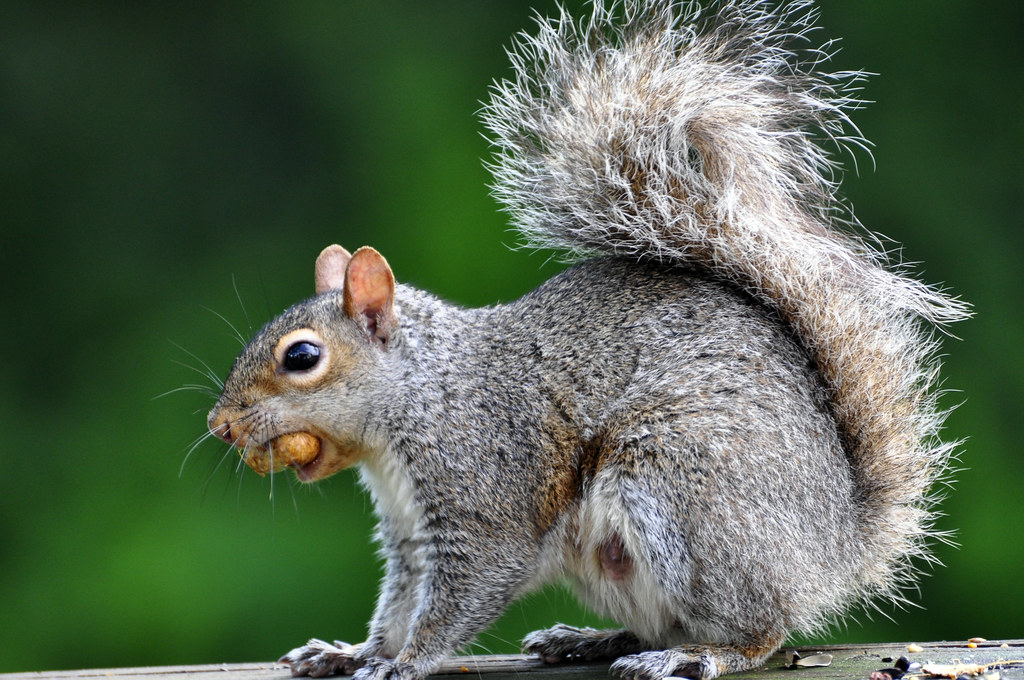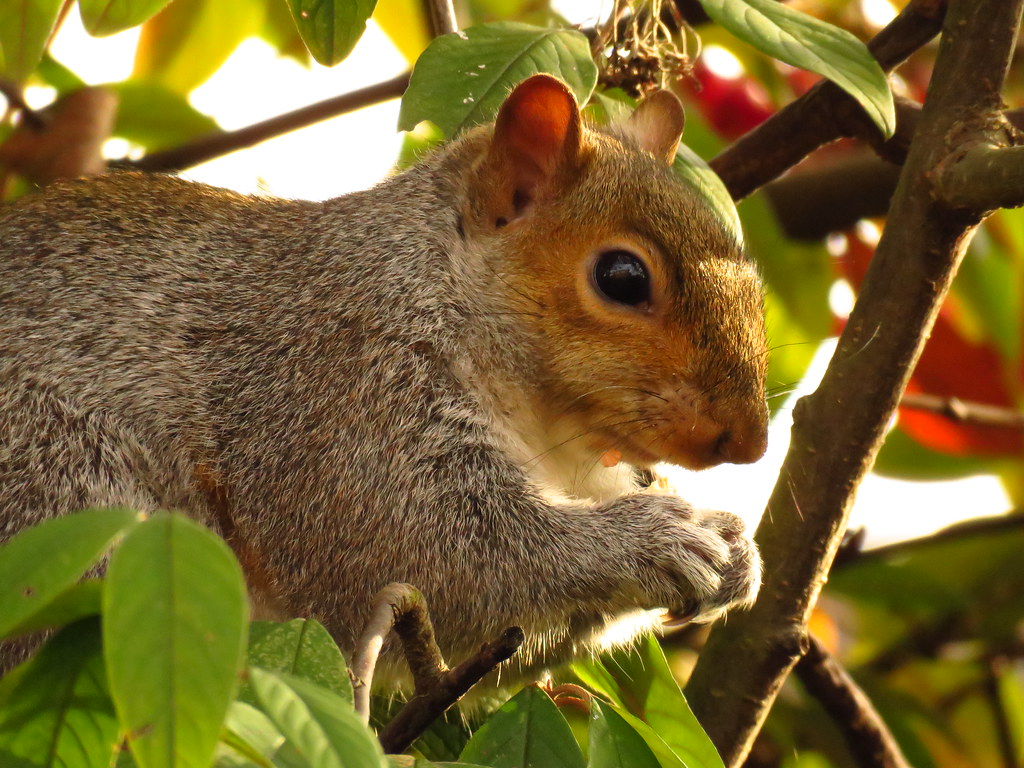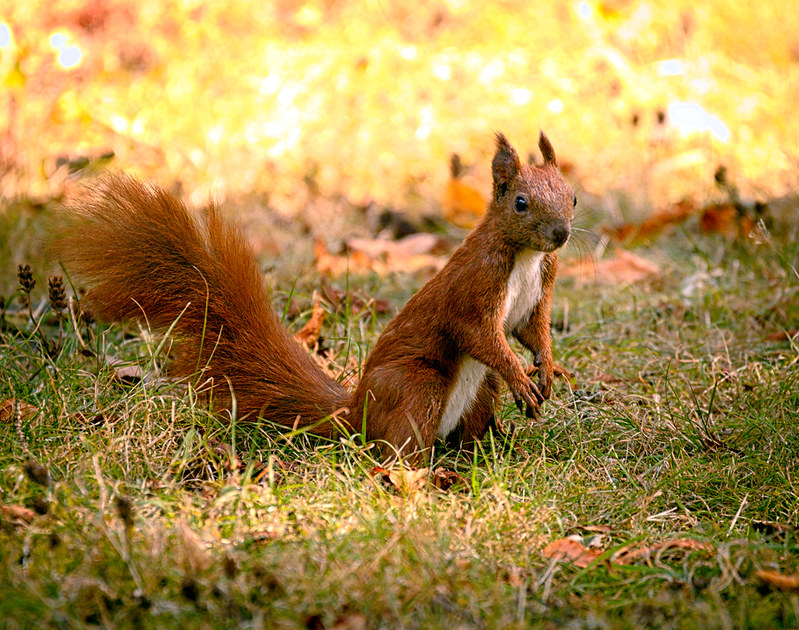Memory, treasure and deceit: the complicated lives of squirrels
21 January 2019
They are ubiquitous in gardens all over the globe, but the life of a squirrel is a complex game of buried treasure, memory, problem solving and trickery.
While most people are familiar with the grey squirrel which shares our back gardens, there are in fact nearly 300 species of squirrel living in almost every climate on Earth, from tropical rainforest to semi-arid desert.
They are predominantly herbivorous, subsisting on seeds and nuts, but many will eat insects and even small vertebrates.
They generally have large eyes and a bushy tail which helps them skilfully climb trees and avoid predators.
They have an excellent sense of smell and can find food buried beneath a foot of snow in the winter months. They then dig a tunnel under the snow, following the scent to find the food.
Squirrels have long been known to have amazing long-term memories, collecting and storing thousands of nuts every autumn. They use this excellent memory to relocate the stored food and coupled with their sense of smell they are able to accurately target their digging to ensure they have enough food to survive the winter.
In most cases, the food they dig up will be supplies they have buried themselves during autumn, yet this may also be food stored by other squirrels. It is estimated that a squirrel will lose 25% of their buried food to such “robberies”.
To reduce the risk of losing their buried treasure, if a squirrel knows that another squirrel is watching it, they have been known to engage in “deceptive caching.” This is when a squirrel digs a hole and vigorously covers it up again, but without depositing the nut as part of an elaborate game to throw off potential food thieves.
Squirrels are also excellent learners and problem solvers. A behavioural research project demonstrated that squirrels learn problem-solving techniques, remember these techniques for long periods and can apply them to new situations. This ability to apply the skills helps them to adapt to living in new environments.
The grey squirrel, for example, has become a frequent visitor to many people’s gardens within its home range, and can now survive very well in towns and cities as it has adapted to remember tricks for getting food out of feeders and applying them to new situations.
In the study, five squirrels were given a task identical to one they had tried 22 months earlier, in which they had to press levers to get hazelnuts. In that first experience, the squirrels improved with practice, taking an average of eight seconds on their first attempt and just two seconds by the final time they tried it. Trying again for the first time in 22 months, they took an average of just three seconds to get a hazelnut.
This new research demonstrates that squirrels not only remember where things have been left, they can also recall problem-solving techniques which they have not used for a long time, and then apply them to new situations.
Squirrels as pets
Surprisingly, squirrels are increasingly being traded as pets, for people to keep within their homes. This is causing a significant amount of suffering to the individual animals and causing safety concerns for the captor.
Putting a wild animal in a home, even if raised by hand from birth, will not make it a domesticated. Domestication is a process that occurs over many generations of animals. Over many generations, the process of domestication will breed-out undesirable traits within a species, as people and the environment select those individuals that are likely to better cope with cohabiting with people.
Even after long periods of time, those animals still retain the ability to revert to their wild nature which can cause public safety issues for those caring for them. Dogs and cats have been through thousands of years of domestication yet four and half million people are bitten by dogs each year in the United States alone, and cats have retained many of their wild characteristics including hunting wild animals, despite a 10,000-year history of living with humans.
Squirrels are wild animals. If we truly love them, they deserve to be free. Please do not keep squirrels, or other wild animal species, as pets.
BACK






